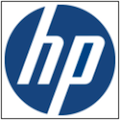 NEWS
NEWS
 NEWS
NEWS
 NEWS
NEWS
![]() I’ve written before that big data necessitates DevOps. As teams build ever larger clusters of servers, the need for automation and close collaboration with developers to manage those servers becomes paramount. It also changes the needs that data center teams have from support contracts. According to HP’s Seamus Dunne, who appeared today on theCube, HP learned that lesson the hard way. Dunne talks a bit about how HP is trying to solve hyperscale support woes with Datacenter Care component of the Always On Support initiative launched today.
I’ve written before that big data necessitates DevOps. As teams build ever larger clusters of servers, the need for automation and close collaboration with developers to manage those servers becomes paramount. It also changes the needs that data center teams have from support contracts. According to HP’s Seamus Dunne, who appeared today on theCube, HP learned that lesson the hard way. Dunne talks a bit about how HP is trying to solve hyperscale support woes with Datacenter Care component of the Always On Support initiative launched today.
Dunne says HP’s hyperscale customers are running complex infrastructures like Hadoop clusters with large numbers of servers and HP’s model of providing support for every single device just didn’t scale. HP also realized that these sorts of advanced customers didn’t need or want basic support. They don’t need hand holding but they do want mission critical support so that when a server blows out, they have a place to turn to get advanced help right away.
Dunne says that for these hyperscale customers HP is focusing on support for infrastructure and operating systems, and letting the customers handle the software layer. This allows IT teams to focus on handling big data problems and not worry about hardware.
Dunne does point out that the Datacenter Care does work with software vendors and can provide software support for organizations that need it, but points out that not every customer needs it. He says that the pricing and support agreements are different for every custom based on their needs.
Obviously Dunne wants to sell these Datacenter Care services, but it’s refreshing to see a vendor admit to having done things wrong in the past and learning from mistakes. HP is the leader in data center hardware, but faces fierce competition from Cisco, Dell and Oracle. HP already has its Project Moonshot and Project Voyager initiatives to distinguish its hardware line, but support is what can really make or break a company. ARM processors, flash memory, automated servers and other futuristic advances are great, but it doesn’t matter much if the support is lousy.
Support our mission to keep content open and free by engaging with theCUBE community. Join theCUBE’s Alumni Trust Network, where technology leaders connect, share intelligence and create opportunities.
Founded by tech visionaries John Furrier and Dave Vellante, SiliconANGLE Media has built a dynamic ecosystem of industry-leading digital media brands that reach 15+ million elite tech professionals. Our new proprietary theCUBE AI Video Cloud is breaking ground in audience interaction, leveraging theCUBEai.com neural network to help technology companies make data-driven decisions and stay at the forefront of industry conversations.